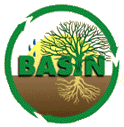The unit is built around participation in the Children's Water Festival,
which occurs each spring at the University of Colorado campus. Sponsored
by The City of Boulder, the Northern Colorado Water Conservancy District,
The University of Colorado, and the Bureau of Reclamation, the Water
Festival is a half-day event for fifth grade students. Students attend
a series of short classes about water issues in this area.
Teachers can choose to receive a series of activities and lessons
to teach and do with their students prior to (and perhaps after) the
Water Festival. The Water Festival itself can stand alone as an interesting
field trip. However, the activities are designed to be done one per
week in the six weeks prior to the Water Festival, which greatly enhances
the festival experience. There is also a number of lessons that can
be taught, so that the Water Festival materials can constitute your
science curriculum for several weeks. Along with other resources and
activities, you can easily teach watershed issues over the last two
months of the school year. Opportunities for integration to all curriculum
areas e.g., writing, math, or social studies (map reading, research)
are plentiful.
To get information about the Children's Water Festival and the learning
activities contact:
Children's Water Festival
City of Boulder
4049 N. 75th Street
Boulder, CO 80301
303-413-7365
BEYOND BASIN RESOURCES
NOTE: Many of the links to resources below have changed since
they were originally developed. These links will be updated shortly.
There is a great variety of resources which can be used by themselves
or along with the Water Festival materials. Here are some ideas:
The Magic School Bus At the Waterworks by
Joanna Cole
While fifth graders might view this book as too "elementary,"
it serves as an effective and fun introductory activity to a unit about
human use of water and the watershed. You could read the book aloud.
It's more effective if you can get your hands on enough copies for each
student or at least enough for two or, at most, three students to share.
Assign individual students (or take volunteers) to read character, text,
and reports parts. Discuss as you go or design a set of questions for
students to answer when you're finished with the book. It's especially
good as a lead-in for a field trip to one or more parts of the Boulder
water system
City of Boulder
Resources. Aside from the Children's Water Festival, there are some
city resources you can draw from. Also, you can take field trips to
make what your students are learning about come to life.
---Students can learn about the three Boulder water systems (drinking,
waste, and stormwater) by viewing a 13 minute video, "Boulder's
Water Story" (see WatershED link above, activity 1.3). Also, there
is the Water History Trunk, a collection of antique water artifacts,
which facilitates the students learning about the history of water use
in this area. Contact the Water Resource Educator, 303-413-7365 to book
either or both.
---Book a field trip at the Betasso Water Treatment Plant (303-413-7400)
or the 75th Street Wastewater Plant (303-413-7340)
Check well in advance to see if either place is available for field
trips (maintenance or repair schedules sometimes preclude field trip
accessibility) and to make a reservation.
Paul Lander, the city's Water Conservation Specialist (303-413-7407),
is available to come to classrooms to share information about water
conservation and city programs.
Free
Water Posters from the US Geologic Survey!
Take a "virtual
field trip" of Boulder Creek. This site includes information
and pictures about the 1894 flood, a graph of average temperature and
precipitation in Boulder, and photos along the Boulder Creek bikepath.
It also links to other virtual field trips, including an information-packed
trip to the Indian Peaks. This is a good site for students to visit.
BEYOND BASIN: ACTIVITIES
These activities can be done alone or in conjunction with other watershed
activities.
The Tapwater
Tour and Pondwater Tour--available from the LaMotte Company (click
on "Educational & Outdoor Monitoring" then "Hands-On
Classroom Activity Kits")
The Tapwater Tour is an investigation of water quality examining the
chemical properites of water from the tap. The Pondwater Tour studies
and measures changes in the water quality of a natural or artificial
body of water, large or small. Students use simple and safe reagent
tablets to test pH, chlorine, hardness, copper, and iron in the Tapwater
Tour and pH, dissolved oxygen, nitrate, and ammonia in the Pondwater
Tour.
Aquatic Project WILD is a source of activities that's been around
for awhile is the by the Western Regional Environmental Education Council,
Inc.

